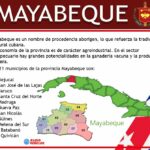After a turbulent rest, the rifles again thundered and the redeeming machetes rang. It was on February 24, 1895, the month was almost over, but the independence and libertarian germ was reborn in a war, more than ever necessary.
Once again, in the fields of eastern Cuba, the trepidation of the Mambisa weapons and the cries of Viva Cuba libre!
The patient and meticulous organizational work of José Martí, at the head of the Cuban Revolutionary Party (PRC), allowed the resumption of the necessary struggle of the Cuban people to conquer their rights to freedom and sovereignty.
The new page of our warrior history began as a result of the union of wills between the patriots in exile and the conspirators in the country.
The epic was prestigious by names, according to the historian Aldo Daniel Naranjo, such as Bartolomé Masó, Jesús Rabí, Esteban Tamayo, Saturnino Lora, Florencio Salcedo, José Reyes and Dominador de la Guardia.
They and many more came out, this glorious day, like fierce titans onto the battlefields.
Among the Mambi chiefs the criterion prevailed that the weapons they did not possess would be taken from the Spanish.
Martí, the main organizer, longed for a quick war so that there would be the fewest number of victims, and without hatred towards the honorable and respectful Spaniard of Cuba.
But he made it very clear in the Montecristi Manifesto, his program of struggle: ?War is not (?) the insane triumph of one Cuban party over another, or the humiliation even of a wrong group of Cubans; but the solemn demonstration of the will of a country that has been tested in the previous war, to throw itself lightly into a conflict that can only be terminated by victory or the grave.
Through the military confrontation, independence would be achieved, and this would make possible the founding of a new Republic, as Martí wanted “with everyone and for the good of all.”
125 years after that feat, the event, the challenge is to keep alive that transcendental passage in the history of Cuba, so that it lasts in the collective memory of the Cuban people.




